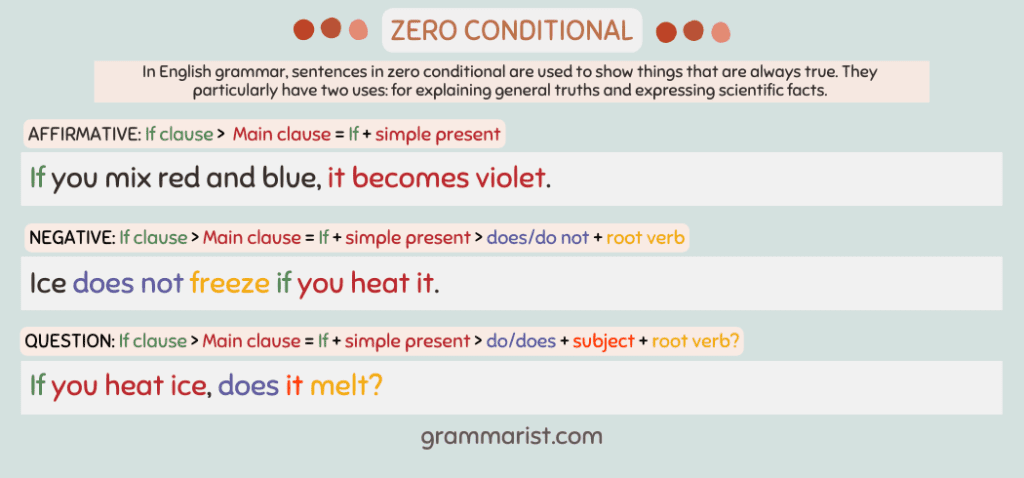There are four types of conditional sentences in the English language: zero, first, second, and third. These conditions pertain to tenses that express what could have, might have, or will occur IF certain things happen or have already happened.
First, understanding how to use the zero conditional sentence structure is the best way to help make sense of the other conditional sentence structures in both your speech and writing. Let’s review what this is and then practice its usage in three different exercises.
Zero Conditional Sentences Explained

General truths are described through the use of zero conditional tense use. This includes scientifically proven theories as well as personal realities.
For example, the following sentence illustrates a personal truth:
- If I get too much sun, I will feel dizzy.
Whereas this sentence represents a proven fact:
- If you take a fish out of the water, it will die.
How to Structure a Zero Conditional Sentence
A zero conditional sentence is always constructed using an “if clause” and a “main clause.”
An “if clause” is an event that might occur, and the “main clause” is the action occurring. Both are written in the simple present tense.
You can interchange the order of the clauses as well as long as the sentence structure remains grammatically correct.
For example:
- If I fail this class, I will have to take the entire semester over again.
- I will have to take the entire semester over again if I fail this class.
The word “if” can also be replaced with the word “when” without changing the sentence’s meaning.
For example:
- When I fail this class, I will have to take the entire semester over again.
- I will have to take the entire semester over again when I fail this class.